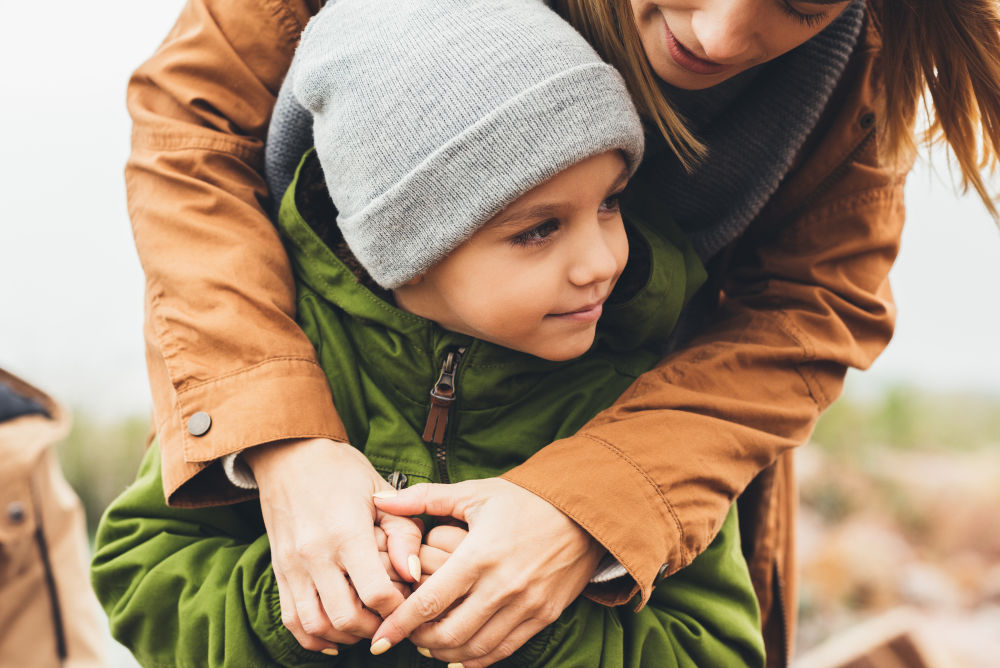I don’t know that there has ever been a time before when the world has been so completely united against a common enemy. That which has come to isolate us, unites us. At a time when we are having to physically distance ourselves from one another (and we must do this), it is faces and voices that are able to reach through the distance and uncertainty of it all and let our common humanity do its job. For me, this is not just through connecting with the ones I know, but by seeing in the faces and hearing in the words of strangers that more than ever, we are in this together. We are vulnerable together, anxious together, sad together, scared together, and in some sweet moments, hopeful.
We are having to adapt in ways that are completely new, and the unfamiliarity of this can bring anxiety for us and our children. Unfamiliar things do that.
For the children and teens in your life, the antidote to their anxiety is you – your words, your presence, your warmth and wisdom. Whether you are a parent, a grandparent, a teacher, or other trusted adult, you have a profound capacity to bring comfort to their world. They need the same things we all do at this time, radical tenderness, play, sleep, exercise, to be held close and loved big. If schedules or routines fall away in favour of this, that’s okay. If screen time gets a little longer and bedtimes get a little later, that’s okay too. These are such extreme circumstances, and there is no formula for how to move through this. We do what we need to do, and if playing, and telling stories, and watching movies together takes the place of schedules and routines, and if that’s what makes them (and you) feel more held through this, then that is what needs to happen.
There will come a time when we will return to normal. It will be a new normal, perhaps, but it will have more of the safety, predictability, and familiarity that comes with a version of normality. The task then will be getting kids back to school, but that will be easier if we can provide a bridge for that before then. There is no hurry for this to happen, but it is something to keep in mind. That bridge might look like online catch-ups with friends, or building an association between something (a music playlist, mindfulness meditations), and feeling calm. Then, when it comes time to return to school, they will have something they can tap into to that can help activate those feelings of calm in the brain. For now though, the focus is on keeping each other safe, and doing what we can to make the world feel safe enough for our children.
For us, the adults in their world, it’s about coming back to the things we know to feel safe and certain. This might look different for all of us – reading, playing, walking, getting outside into nature, exercising, sleeping, playing, cooking, but maybe not tonight, watching movies, or taking warm baths. If you’re not sure what it is, what helped you feel safe when you were little? Can you go back to that?
We have to do what we need to take care of each other. For the moment this means those of us who can stay home, need to stay home. For those who can’t – our teachers, nurses, hospital staff, doctors, supermarket employees, paramedics, police, and many others – we need to stay home for them too. They are the heroes, and it’s the least we can do for them and for their families. This is important, and it’s what we have to do, but it has consequences. People will feel more isolated, or lonely, perhaps more anxious or sad. Don’t underestimate what the little things might mean to the ones in your life who might be missing you, or who might be feeling more separate from the world, or maybe more anxious than usual – phone calls, messages, video chats, social media tags with ‘this reminded me of you’ in the message. Let’s not take the little things for granted. They matter. As it turns out, the little things will be the big things that will get us through this.
Yes, we need to physically isolate ourselves, but let’s not isolate ourselves socially or emotionally. We need each other more than ever – not only to get to the other side of this on a global scale, but individually. Let’s be more like the people we need to be, and the people we were called to be. Let’s leave judgement and comparison and righteousness well behind. They have nothing for us anyway. They never did. And let’s replace them with radical kindness, compassion, and open-heartedness. Let’s do that.
We will get through this, and we’ll do it together x



Leave a Reply